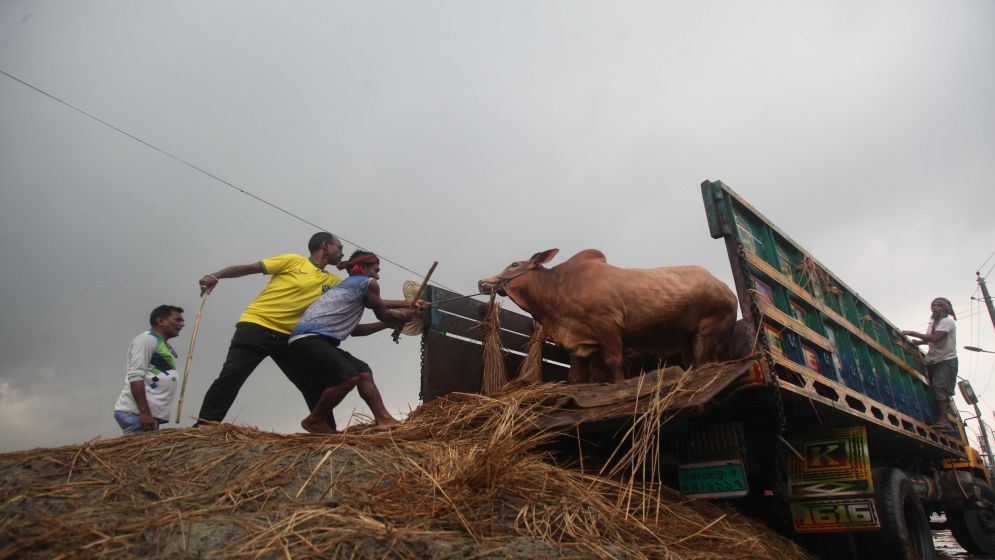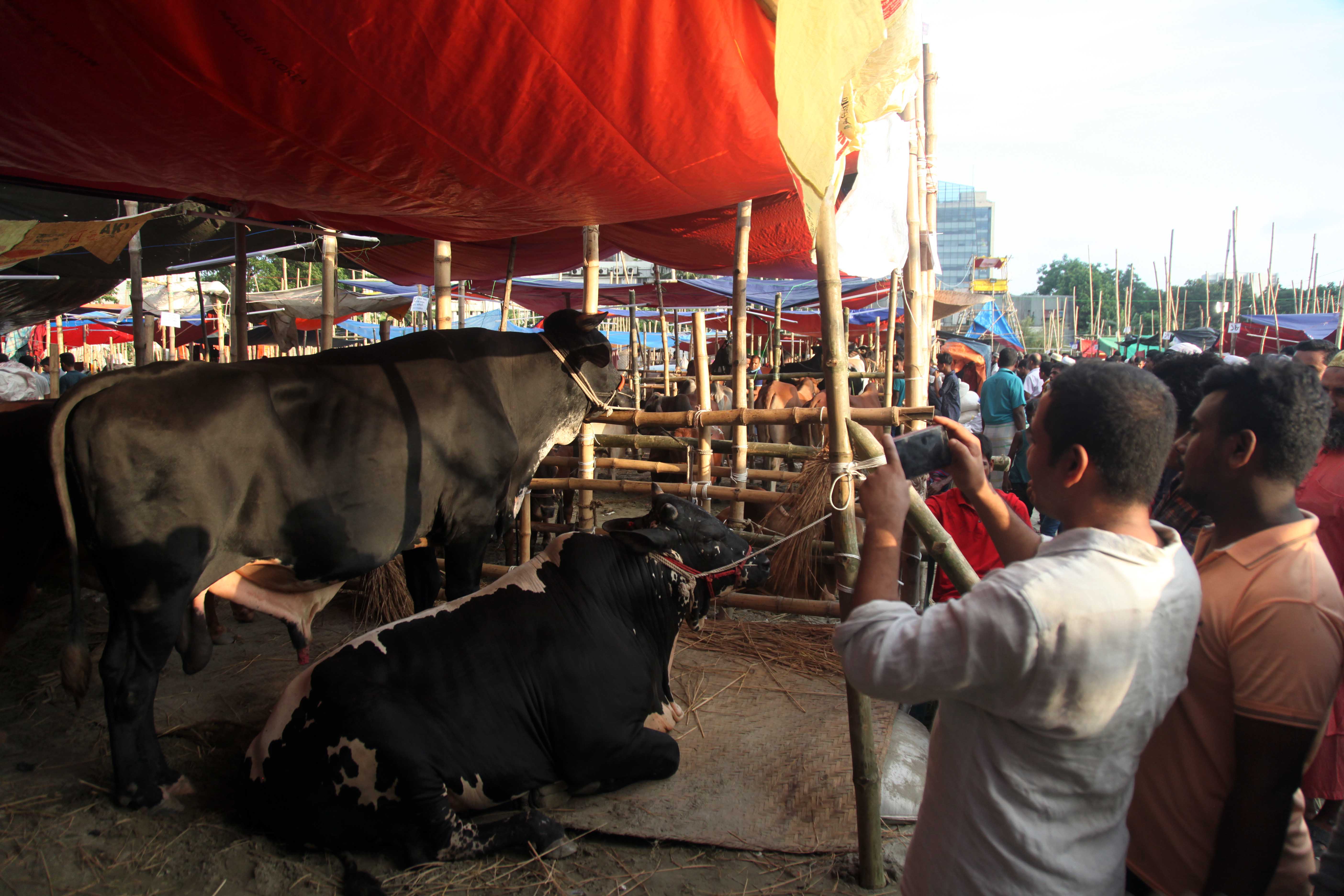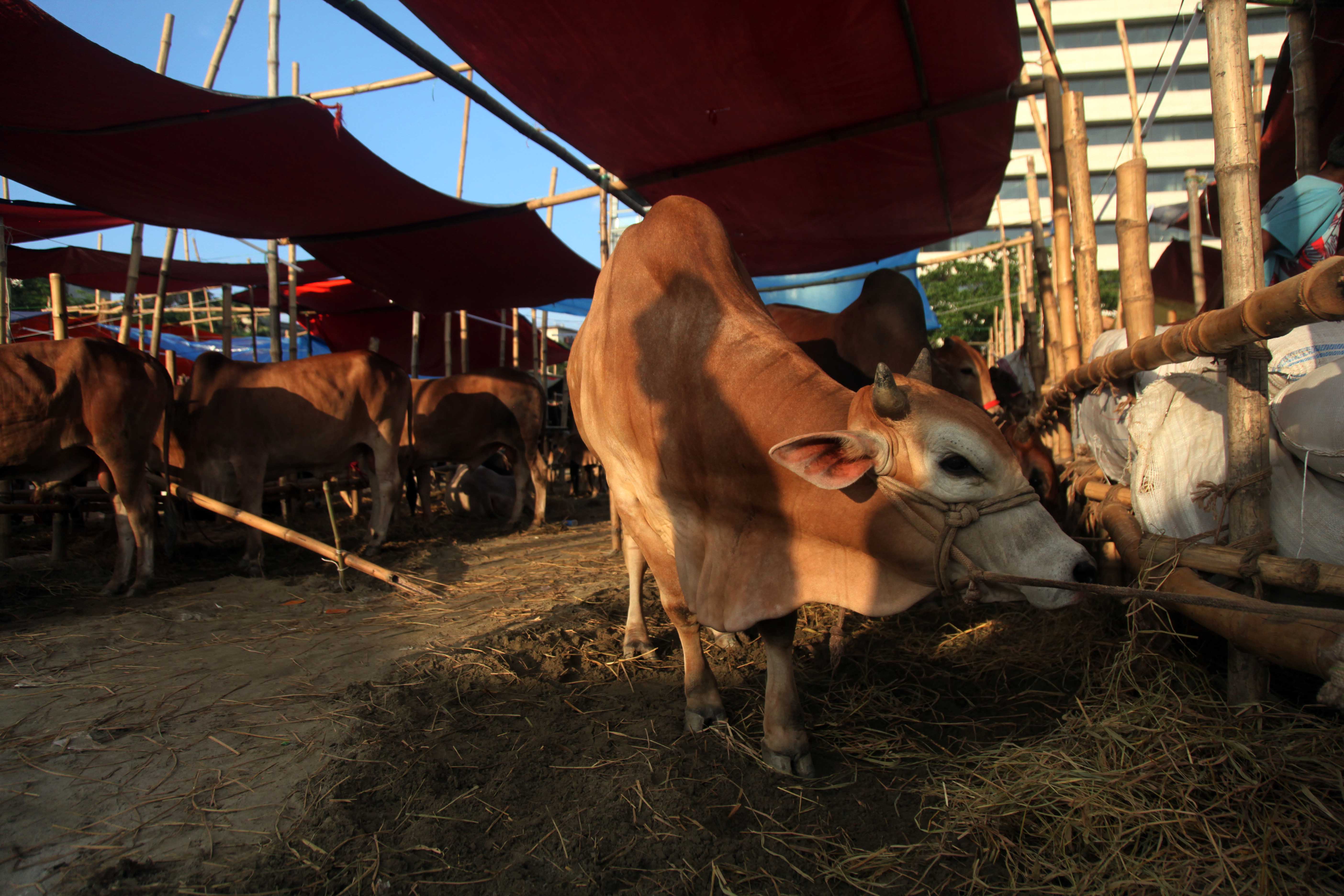Cows on harmful steroids: Be aware of fat cows in haats this year….

Buyers have the penchant to buy fat-looking cows. Photo Credit: Nazmul Islam
Three months ago, Azhar Ali purchased a medium-sized cow for Tk 60,000 with the intention of profiting from its sale during Eid-ul-Adha.
Following his neighbor's example, he fed the cow a large amount of "vitamins" to quickly fatten it up. Within a month, the cow gained significant weight, attracting buyers who offered nearly double the original purchase price.
However, driven by greed, Azhar decided to administer Dexamet, a steroid, to further enhance the cow's appearance. Tragically, the cow died within a week.
Although Azhar's attempt to make quick money failed, many cattle traders continue to use similar practices ahead of Qurbani Eid, the second largest festival for Muslims worldwide.

While a plump cow may appeal to buyers and bring them temporary pride, experts warn that meat from steroid-treated animals poses serious health risks.
A study in the Bangladesh Animal Journal reveals that 63.7 percent of farmers use cattle-fattening tablets, and sales of these banned steroid hormones surge before Qurbani Eid.
Disguised as veterinary medicine, these hormones, intended for critically ill patients, are injected into sacrificial animals by farmers.
The Animal Feed Act 2010 prohibits such practices, imposing penalties of up to a year in prison and a Tk 50,000 fine. Yet, these illegal medicines are readily available, even in remote village shops, where cow traders purchase them cheaply and fatten their animals without consequence.
Market sources reveal that traders primarily purchase medications like 'Adam-33' and 'Oradexon' from Novita Group, and 'Decatron' from Delta Pharma.
Additionally, each 'Roxdex' injection by Novita Group sells for Tk 25. Several other companies, including Hira Animal Healthcare, Sky Agro Pharma, and others, are also involved in marketing illegal medications and injections.

Besides these local brands, medicines such as 'Dexamethason,' 'Dexavet,' and 'B-50' are illegally imported from Thailand, Myanmar and India and sold in the local market.
The sales of these medications predominantly occur illicitly in pharmacies without veterinary prescriptions. A network of traders and pharmacists are involved in this unlawful trade.
Professor Abdus Samad, a faculty member at Bangladesh Agricultural University (BAU) told Bangla Outlook that injecting banned steroid hormones to fatten cattle is a widespread practice in the country's livestock market before Eid-ul-Adha.
“This unscientific method causes rapid weight gain due to fluid retention caused by kidney and liver damage, creating the illusion of fat,” said Professor Samad, “However, it leaves the animals susceptible to diabetes and other diseases.”
He explains that feeding 20 to 25 tablets to an animal strains its kidneys and organs, disrupting urine flow and leading to a bloated appearance within days.
Professor Samad advocates for a scientific cattle fattening method, involving feeding the animals a balanced diet of urea, molasses, and straw (UMS) for approximately six months.
He contrasts this with the dangerous rapid fattening method, which can lead to the animal's death within 20-25 days due to steroid use.
“Consuming meat from animals fattened with such drugs poses significant health risks, including cancer and kidney failure,” he warned, admitting that specific research on this topic in Bangladesh is still lacking.

Cattle farmers however face significant challenges this year due to excessive heat, hindering the animals' feeding and natural fattening process.
Since April, temperatures have soared across the country, reaching a record-breaking 43 degrees Celsius. This extreme heat has caused animals to lose their appetite and exhibit symptoms like asthma, even with adequate ventilation.
Livestock offices reported the deaths of 13 cows in Jashore's Manirampur and 22 cows in Dhaka's Savar due to heat, with similar incidents reported nationwide.
Shagar Hasnat, owner of Ahlan Agro at Basila told Bangla Outlook that almost all cattle markets are swamped with artificially fattened cows this year.
“Because of the extreme heat wave and changing weather patterns, it was very hard to naturally fatten the cows this year. Almost all of us, the organic cattle farmers struggled,” said Hasnat, “So, I am pretty sure that if you see abnormally fat cows in the haat, they are artificially fattened.”

